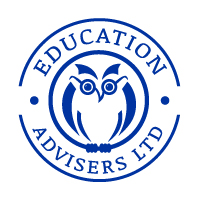Daily summary of the latest news and opinions from the world of independent education bought to you by Education Advisers...

All post-16 pupils should study a vocational course, former Eton head says
Negative attitudes towards vocational courses will not change until all post-16 pupils are obliged to study at least one vocational subject, according to the former head master of Eton College.
Tony Little, who headed the boarding school between 2002 and 2015, said: “In my view, things won’t change until it’s an obligation on all schools and all students post-16 to take at least one vocational course. Whoever they are, whatever their aspirations may be.”
For example, he said, a highly academic pupil, studying double maths and physics A levels and planning to apply to top universities, would benefit from taking a vocational course in engineering, problem-solving or design.
Students who take vocational courses, he said, “tend to be more flexible, more able to deal with information in different ways. Even better with deadlines.”
Mr Little was addressing an audience at the UCL Institute of Education. He was taking part in a panel debate on the subject “What if…we really wanted to overcome the academic-vocational divide?” The panel also included former Ofsted chief inspector Sir Michael Wilshaw.
Mr Little admitted, however, that he had never introduced compulsory post-16 vocational courses at any of the schools that he led, because he feared that university admissions tutors might not respond favourably to applications from these pupils.
“It must come with the re-education of our university admissions tutors,” he said.
Read more at: https://www.tes.com/news/school-news/breaking-news/all-post-16-pupils-should-study-a-vocational-course-former-eton-head
What Quaker schools can teach the rest of the class about equality, mutual respect and learning
The head of England’s schools inspectorate believes that British values, including tolerance, openness to new ideas and mutual respect, should form a central part of school education.
Amanda Spielman, the new Ofsted chief, said the education system has a “vital role in inculcating and upholding” these values. She went on to praise one school which promotes inclusiveness, and another where a “values-focused” thought each day informs teaching.
But the very subject of teaching values in school can be problematic. Whose values are really being taught? How will a school’s performance of this duty be measured? Others think we should step back from the question of “British” values and focus on helping children develop a “virtuous” character.
But what happens when an entire school culture is seen by its students as promoting equality, mutual respect and inclusiveness?
New research reveals a significant relationship between Quaker school values and their students’ engagement with learning opportunities. Quaker schools are not common (there are ten in the UK and Ireland, 100 in the US), but they exist in 15 countries around the world. Some are very well established and highly thought of – both the Clintons and the Obamas sent their children to a Quaker establishment, Sidwell Friends School, from the White House.
Although independent, Quaker schools rarely admit students based on academic selection. Quakers believe there is “something of God in everyone”. They actively encourage inclusiveness and stress that each student will grow and develop in their own way.
Yet counter-intuitively, students often perform very well in exams and the schools punch above their weight in academic results.
Spielman may be on to something in her desire to see values play an important role in school education. But the challenge will be to help schools adopt cultures where those values are authentically – and visibly – practised.
